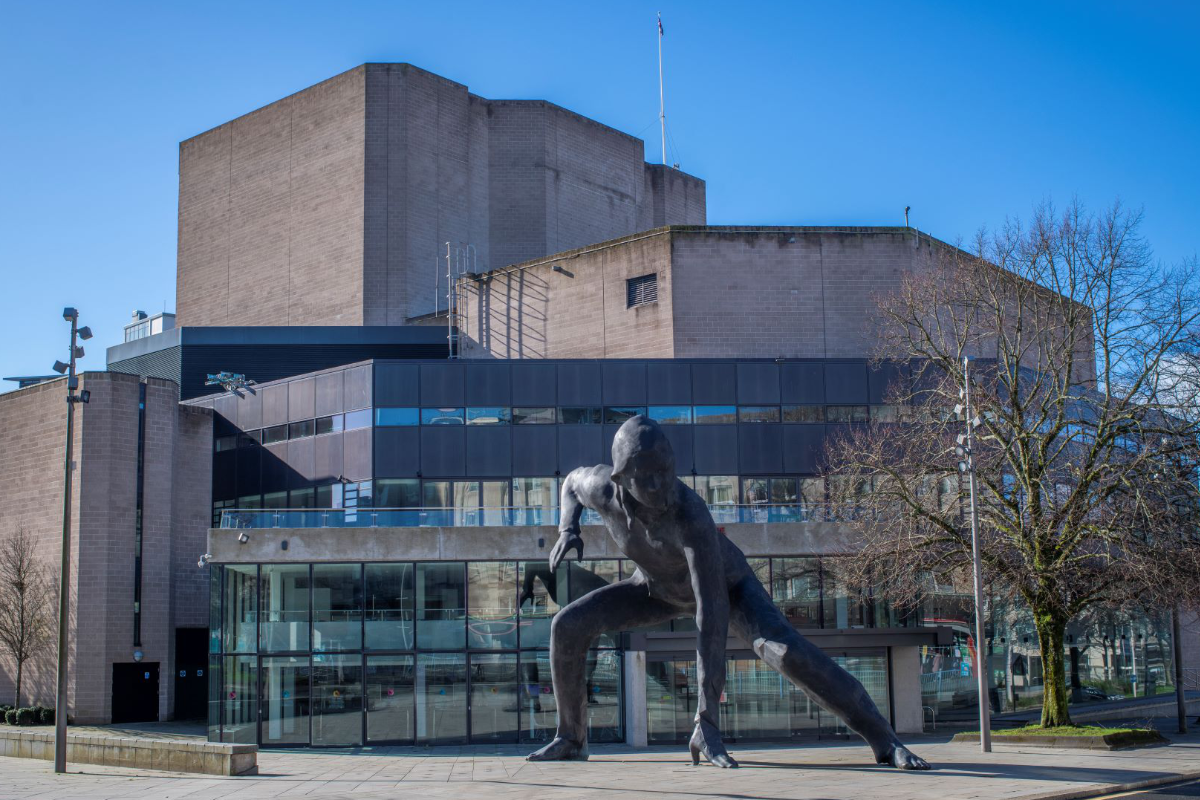
Theatre Royal Plymouth
Photo: Steve Hayward
Theatre to become ‘warmth bank’ this winter
Despite the huge financial challenges facing arts organisations this winter, James Mackenzie-Blackman is determined his theatre will remain open to serve the community.
A few weeks ago, a colleague arrived in my office door looking ashen. I was really concerned about what I may have been about to hear. “I hope you’re feeling resilient today, James.”
I was then told our electricity tariff at Theatre Royal Plymouth was going to rise by just under 400%. Our current tariff ends this week. In normal times when we go to market for a new supplier, we receive between 20 – 25 quotes. This time we got three. Perhaps I should have known because, of course, these aren’t normal times. They haven’t been a very long time.
As I write this, there are lots of variables in terms of the government’s support that we understand is coming our way. What we do know is that it’s not going to last for long. An initial six months. In the grand scheme of running a £20m business like a theatre, six months passes very quickly.
In fact, I spend most of my time working well beyond the time we are actually living in – planning, preparing for the work, the challenges in the years ahead. And of course, these are very challenging times.
Never so powerless
So, what does this latest challenge mean for Theatre Royal Plymouth? It means we are going to have to be very, very considered in our decisions about what we do, where we do it and when.
It will mean that if we can’t find the very, very best work for our 1,300-seat auditorium, we will not programme it at all – to save costs. I do hope though that this challenge will help us embody our commitment to doing more outside our building, in communities, on our waterfront where, you guessed it, we don’t need as much power.
The word ‘power’ in this context resonates. In many ways it’s perceived that I have lots of it. The reality is that people in jobs like mine have never been so powerless in confronting the challenges our businesses are facing.
Ticket income is still down after the pandemic, costs are up and there is very little we can do to change that other than to be bold and brave in our curatorial and programming choices.
A ‘warmth bank’
We’re also very tired. Very tired indeed. It’s been a long three years. I don’t know any CEO who has furloughed themselves. We’re supporting each other as best we can. We come together, we rant, we laugh hysterically, we worry together, we share ideas, we proudly copy-and-paste other people’s good ideas.
The energy crisis isn’t just a challenge for business. It’s a challenge for all of us in the arts. Theatre Royal Plymouth is an organisation full of people who care passionately about the city of Plymouth and the wider South West.
This winter we’ll ensure our building is open. Open and warm. We’ll invite people in who need that warmth and who can save on their bills at home by sitting in our theatre. While they are in our building we will find ways to encourage their creativity.
So, we’ll be a ‘warmth bank’. What an extraordinary, very sad turn of events. Though, we are used to those now, aren’t we?
What hope for the future?
I hope these extreme times will pass. I hope it feels a little bit easier in the future. I hope that in the eye-of-the-storm we take the energy of the storm to ensure our theatre matters more to more people.
I hope that cultural organisations like ours connect the energy bills crisis to the climate emergency. I hope that brilliant artists who are making work about the climate get their work in front of more people. I hope minds are changed, attitudes are shifted.
I hope we (Theatre Royal Plymouth, theatre as a whole, my peers, my pals) survive this. I hope ACE does all in its power to lobby ministers, DCMS and the Treasury to continue to invest in culture at a time when the public purse has not been under such pressure for a generation.
Now, perhaps more than any time I have known, we need to see the world in new ways, to escape from the news, to come in, to sit with others for a shared experience, for the house lights to be lowered (saving costs), for the stage lights to be lit (costs back up) and to have a shared experienced, to be transported to another place, to forget.
James Mackenzie-Blackman is Chief Executive Office at Theatre Royal Plymouth.
![]() @jamesmackblack | @TRPlymouth
@jamesmackblack | @TRPlymouth
Join the Discussion
You must be logged in to post a comment.